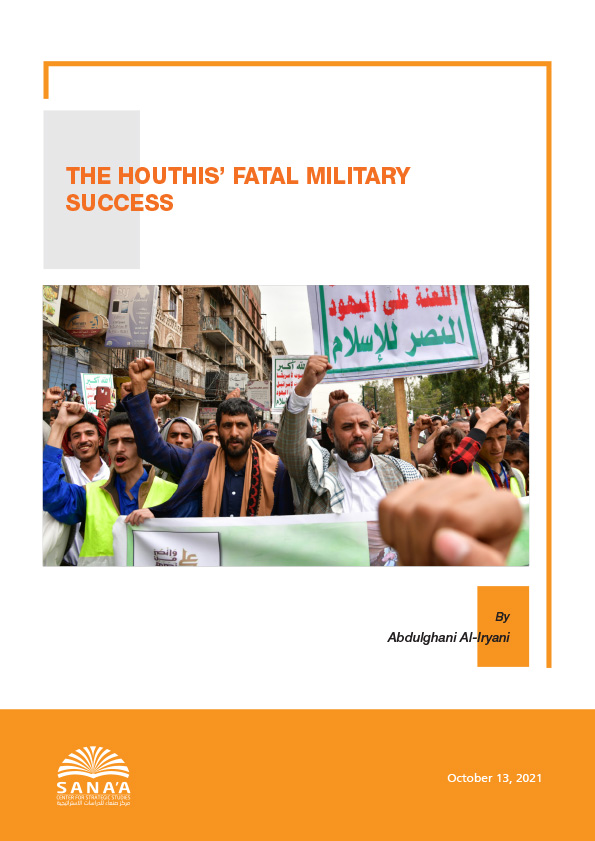Seven years into the Yemen war, nearly everyone has come to accept what was obvious from the start: foreign military interventions carry within them the seeds of their own failure. The arrogance of the intervening powers humiliates and demoralizes their local partners and clients. The intervening powers are often most comfortable dealing with the most compliant and easily manipulated of their local partners, thereby creating a selection process in which the least patriotic and the most corrupt often become the partners of choice. The arrogance of the intervening powers and the corruption of their local clients are frequently the two most powerful weapons in the arsenal of the parties resisting the intervention. This is the basic formula that has determined the outcomes of many foreign military interventions during the twentieth and twenty-first centuries.
Most, observers and activists alike, now acknowledge that the Houthis are winning, but the question is what are they winning?
The Houthis’ most obvious victory is the division and discord of their opponents. Their military posture, bearing down on Marib and extending their reach into southern Yemen, is cause for celebration in Sana’a, Tehran, and capitals of the “Resistance”. Each military success for the Houthis strengthens their most radical and ideological faction at the expense of the moderates, both within the Houthi movement itself as well as in their larger coalition, which includes the reconstituted Sana’a-based elites of the former regime of the late Ali Abdullah Saleh, alongside tribal leaders from all over Yemen. The radical wing is ideologically committed to the Zaidi concept of Wilayah, restricting the right to rule for the descendants of Hasan and Hussein, grandsons of the Prophet Mohammed. Houthis continue to detain hundreds of members of the party Saleh had founded and led, the General People’s Congress, freeze the party’s assets and ban its activities, even internal party meetings. This harsh treatment of their key ally demonstrates that Houthis do not appreciate the fact that the northern Zaidi-tribal coalition led by Saleh was the instrument that turned their movement from a minor radical military militia into the closest approximation of a Yemeni state. That they can’t accept this indicates that they will not accept any meaningful power-sharing agreement with other actors in Yemen.
On a recent trip to Sana’a, I asked multiple Houthi interlocutors: “What will the role of the Sayyid (Abdelmalek al-Houthi) be in the post-war Yemeni state?” No one could give me an answer. As per Houthi dogma, Abdelmalek is considered Al-Wali Al-Alam, the premier holder of Wilayah who enjoys absolute power and authority over the nation. His power cannot be shared. At the moment, while the radical wing of the Houthis, intoxicated by a series of victories that were handed to them by the incompetent leadership of the other side, is planning to complete their control over the rest of Yemen, the desperate resistance in Marib is considering its options.
The tribes in Marib have a choice, the offer made to them by Houthis nearly a year ago: denounce the Saudi-led coalition, kick out Al-Qaeda in Arabian Peninsula and Islamic State militants in the governorate, and share oil and gas revenues from Marib with the Houthis. In exchange, the governor, Sultan al-Aradah, who hails from the prominent Abidah tribe, and the local leadership of Marib can keep their positions, and enjoy, at least for the time being, a degree of local autonomy. There is some attraction to the deal. The tribes in Marib have suffered significant losses in this bloody war of attrition. Some worry that the Houthis can simply stomach more casualties than the tribes. After all, the Houthis draw on a pool of recruits from a population of over 20 million. The tribes have a pool of less than a quarter of a million, and some are edging closer to accepting the Houthis’ deal.
The Islah party, which controls Marib for the anti-Houthi coalition, is in a tougher position. The Houthis found common cause with Southern Transitional Council and its backer, the UAE, in annihilating Islah, often considered the Yemeni affiliate of the regional Muslim Brotherhood movement, while Saudi Arabia, the traditional backer of Islah, has turned hostile to Islamists. That leaves the leadership of Islah with few options.
While a few voices in the Marib leadership of Islah have responded favorably to a proposal to merge with the GPC to broaden its front and survive this exceptionally difficult time, the strategy of most in Islah’s leadership seems to be a tragic mixture of paralysis and defiance, all while discreet discussions between a faction of Islah and the Houthis is pointing toward a direct deal.
So, as Saudi Arabia waves the white flag and seeks a deal with the Houthis that satisfies its security concerns and, according to Saudi insiders, lets the Yemenis keep fighting, Islah is moving toward accepting the Houthis’ deal for Marib. This deal would likely lead to a more comprehensive agreement that would reproduce the pre-1962 theocracy, where the Sunni Islah becomes the junior partner of the Zaidi Houthis. Should that happen, it would produce a theocracy that offers no place for non-sectarian groups or southern Yemen. The Yemeni state would not survive that.
Nor will any deal between the Houthis and their opponents last. Excluded constituents will rise, and the Houthis will eventually find themselves fighting a number of different groups on multiple fronts, including the northern Zaidi demographic that has so far taken up arms to repel external “aggression.”
Whether Saudi Arabia and Houthis make a deal to end the war or Islah beats the Saudis to a deal with the Houthis first, any agreement that emerges will have little chance of survival in the long term. It will close one chapter of the Yemeni war only to open a new more violent one. All sides, the Houthis, Islah and the Saudis, should reconsider such paths of action and work together to achieve the minimum terms that will restore stability, and eventually an inclusive peace deal.
Political settlements that lead to a stable state are based on creating a balance among competing actors so that they check each other and make any resort to violence unprofitable. The broader the base of the political agreement, the more stable it becomes. In Yemen, the checks and balances of stable democracies don’t operate due to the lack of a tradition of rule of law and the absence of strong civil society. Non-inclusive elite deals may produce brief breaks in violence, but they can’t produce the long-term stability that Yemen needs for its survival.
Stability in Yemen can be achieved only through balancing the center with the periphery, ie, the governorates, through deep administrative, fiscal and security sector decentralization, using models tried and tested in federal systems around the world.
Houthi military successes are making them less likely to compromise on the principle of Wilayah and the absolute authority of the Sayyid, and therefore unable to share power in a way that creates these checks and balances. That could lead to the destruction of the Yemeni state. That is, in essence, what the Houthis are winning.
Abdulghani Al-Iryani is a senior researcher at the Sana’a Center for Strategic Studies where he focuses on the peace process, conflict analysis and transformations of the Yemeni state.
The Sana’a Center for Strategic Studies is an independent think-tank that seeks to foster change through knowledge production with a focus on Yemen and the surrounding region. The Center’s publications and programs, offered in both Arabic and English, cover political, social, economic and security related developments, aiming to impact policy locally, regionally, and internationally.
This publication was produced by the Sana’a Center for Strategic Studies as part of the Leveraging Innovative Technology for Ceasefire Monitoring, Civilian Protection and Accountability in Yemen project. It is funded by the German Federal Government, the Government of Canada and the European Union.
The views expressed within this commentary are the personal views of the author(s) only, and do not represent the views of the Sana’a Center for Strategic Studies, its partner(s), or any other persons or organizations with whom the participants may be otherwise affiliated. The contents of this document can under no circumstances be regarded as reflecting the positions of the German Federal Government, the Government of Canada or the European Union.

 اقرأ المحتوى باللغة العربية
اقرأ المحتوى باللغة العربية

